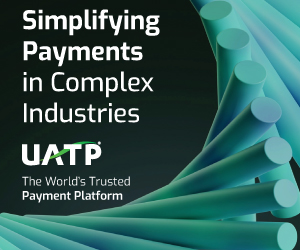Effective travel management has always required a
multidisciplinary approach, mixing people skills with attention to detail, analytical prowess and a firm grasp on the dynamics of the ever-changing travel industry. What’s needed in the future will also be a combination – adapting competencies in those familiar areas while learning how to make the best use of new technologies, notably artificial intelligence.
Speaking on the latest edition of Business Travel Executive Town Hall, corporate travel manager Mat Domaradzki of Dartmouth Health, Mihai Dinu, an expense reporting manager for software company UiPath, and Lea McLeod, a career coach and one-time travel procurement professional, stressed curiosity, creativity and education.
During the LinkedIn Audio event conducted in April, the trio addressed the impact of changes in technology, advising travel managers to be like a sponge and soak in all the knowledge possible about the job at hand and related areas. View AI as an enabler rather than a threat. Use it as a complement to help accomplish tasks that in the past were too hard, if not impossible, and free up time to tackle other things.
Importantly, AI isn’t ready to supplant some of the key travel manager qualifications. Excellent customer service needs a human touch. People need to walk other people through change. Relationship management doesn’t occur within machines. Much of today’s upskilling is about applying automation appropriately without losing sight of interpersonal aptitude.
“We’re never going to lose that requirement for the people-centric abilities that we’ve always had in the travel system,” said McLeod, a coach and consultant for individuals and teams. “You’re still going to have stakeholders you need to influence, people in the system who are traveling with specific needs and suppliers you need to negotiate with. The people-oriented stuff, the relationship-building stuff, the influencing skills – probably AI can’t do that to the extent that humans can.”
AI Do’s & Don’t’s
To be sure, AI will change the game for everyone.
“We used to have business unit managers who asked for a forecast of their travel, and we didn’t have years of data we could feed into an AI tool and create predictive models,” McLeod said. “What can you do now, and how does that bring value to the organization? Then you layer the relationship piece on top of that, and now you’re really creating leadership momentum in the organization.”
Dartmouth Health is sourcing tools for online booking and expense management, “and you better believe that we will ask in this RFP how AI could help us,” said Domaradzki. Working within finance, he wants sufficient data for analyzing spending and catching program leakage.
Dinu, who is a Bucharest-based expense reporting manager at UiPath, a robotic process automation software company, has experimented with ChatGPT and found some potential use cases for otherwise time-consuming and repetitive back-office processes for meetings management.
However, the information created by generative AI isn’t always accurate, and that’s a red flag in corporate travel management, according to Dinu. A mistake regarding a date, a hotel location or an intended destination would be a big problem in trip planning. “We should first understand how these tools function,” he said.
“It’s hard to see how we can digest everything,” according to Domaradzki. “Overnight, it looks like our jobs have changed because of this tool. It’s going to take some time.”
McLeod’s message was to maintain a “beginner’s mindset and don’t be afraid to learn” about AI. Read up, attend webinars and seek out courses. “This is a time when you absorb as much as you can and get as much data as you can about what this actually is and what it has the capacity to do, and then how it might influence the business that you’re in,” McLeod said.
Oiling the Machine
Data underlies everything in managing and buying travel. What’s different today, according to Dinu, is more consolidation and greater sophistication producing more actionable data.
To him, that presents an opportunity to use technology to address human needs, for example by monitoring travel activity for signs that employees could use a break. “We could partner with HR, build some models and show leadership how, in this case, performance could be affected,” he said. “Data is the new oil, and now we have the means to analyze and take action based on that.”
Access to data is a precursor to finding solutions. It opens the door for critical thinking and “adaptive skills,” McLeod said. As distinct from “crystallized knowledge” about things you can remember or find in a dictionary, adaptive skills lean on “fluid thinking” and analytics to problem-solve in new and dynamic situations.
When it comes to learning about AI, McLeod said, “We have to tap into different parts of our brain and our psyche to create solutions that may not be patently obvious from the way we may have done it in the past.” She cited economic impact and sustainability as “big-picture challenges” suited for adaptive skill sets.
The Right Mix
Traditional skills still play roles, but they will need updating in some ways to mesh with tech advancements and address the changing behaviors and sentiments among travelers.
If crucial issues like sustainability and revised airline distribution strategies challenge travel management pros, consider how confused travelers may be. This is where Dinu believes customer care skills should be brought to bear.
“It is very important for travel managers to make sure they can hear the traveler and be there for them,” he said. “They don’t know what booking options they need to select. This is a stressful situation for them as well.” Dinu would like to see software and travel tech companies focus their AI development on “reducing traveler friction.”
Domaradzki talked up proactive engagement throughout the organization. While traveler surveys have a place, especially in companies with large traveler populations, actually speaking with HR, risk management and front-line TMC employees generates feedback beyond hard numbers and allows him to make program improvements.
Stakeholder engagement as a foundation can help with change management – a seemingly constant task for corporate travel pros but something McLeod sees some organizations trying to avoid.
“There’s a lot of clinging to the old ways of doing things or a reticence to open up to the fact that this whole landscape could change very quickly,” McLeod said. “Part of it is understanding the dynamics of change, how to manage it and how it’s going to affect your organization.”
The speakers agreed that professional development is vital to thriving in a career that calls on proficiencies in various areas. Corporate training can be tedious. Not everyone will get the same benefit from it, and it might not apply to a real-world situation for a while, but it’s still important. So is finding educational opportunities outside the workplace.
“Curiosity will drive you to understand more,” Domaradzki said, suggesting participation in professional associations, mentor programs and networking groups. Someone may think they became well-versed in something, but with new technology like AI, there’s a lot to know and a lot that’s constantly changing. “If you have the mindset that you’re a beginner, there are no stupid questions. To be the best you can for the organization that has brought you in, you need to work on self-reflection and self-improvement.”











